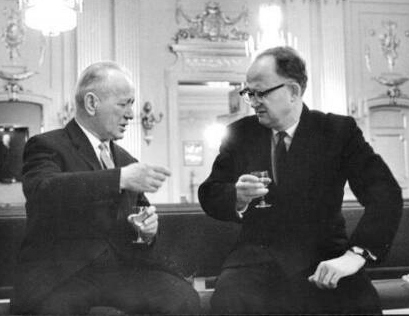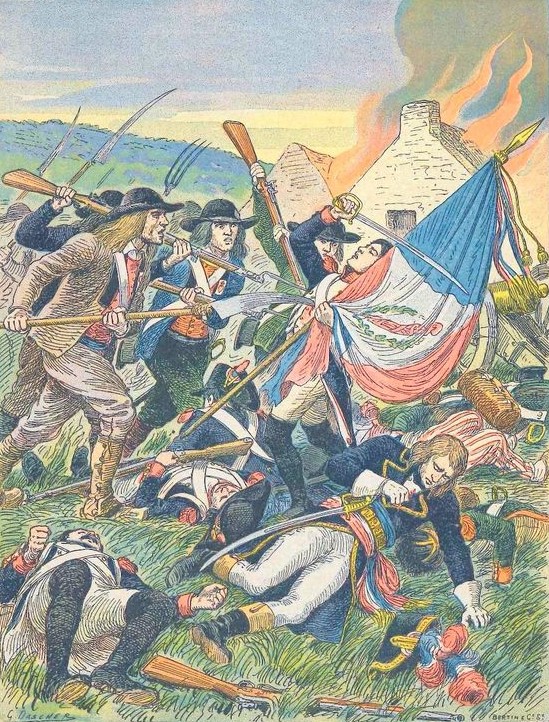|
Veshenskaya
VyoshenskayaAlso tranliterated Veshenskaya. ( rus, Вёшенская, p=ˈvʲɵʂɨnskəjə), colloquially known as Vyoshki (), is a rural locality (a ''stanitsa'') and the administrative center of Sholokhovsky District of Rostov Oblast, Russia, located in the northern reaches of the Don River on its left bank. Population: History Local tradition asserts that the stanitsa was first mentioned in 1672.. However, a settlement called ''Veesky'' in the very same place is marked on a map of Southern Russia from Isaac Massa's book printed in 1638. During the Russian Civil War in 1919, the Upper-Don Anti-Bolshevists operated from Vyoshenskaya. The Vyoshenskaya Uprising and its leader, Pavel Kudinov, are described in Sholokhov's novel ''And Quiet Flows the Don''. The rebels had withdrawn from the White Army and joined the Bolsheviks, but rose in arms because of the Red Terror. They felt betrayed by the Bolsheviks who had promised that the Upper Don would be spared any military act ... [...More Info...] [...Related Items...] OR: [Wikipedia] [Google] [Baidu] |
Mikhail Sholokhov
Mikhail Aleksandrovich Sholokhov ( rus, Михаил Александрович Шолохов, p=ˈʂoləxəf; – 21 February 1984) was a Russian novelist and winner of the 1965 Nobel Prize in Literature. He is known for writing about life and fate of Don Cossacks during the Russian Revolution, the civil war and the period of collectivization, primarily in his most famous novel, '' And Quiet Flows the Don''. Life and work Sholokhov was born in the Russian Empire, in the "land of the Cossacks" – the Kruzhilin hamlet, part of stanitsa Vyoshenskaya, in the former Administrative Region of the Don Cossack Host. His father, a Russian, Aleksander Mikhailovich Sholokhov (1865–1925), was a member of the lower middle class, at various times a farmer, a cattle trader, and a miller. Sholokhov's mother, Anastasia Danilovna Chernikova (1871–1942), the widow of a Cossack, came from Ukrainian peasant stock (her father was a peasant in the Chernihiv oblast). She did not becom ... [...More Info...] [...Related Items...] OR: [Wikipedia] [Google] [Baidu] |
Nikolay Krasnov (soldier)
Nikolay Ivanovich Krasnov (, 29 January 1833 – 15 September 1900) was a lieutenant general of the Imperial Russian Army. Nikolay Krasnov was born in the stanitsa Veshenskaya of the Don Host Oblast, the son of lieutenant-general Ivan Krasnov (1800 –1871). He graduated from the 1st Cadets Corps in Saint Petersburg and since 1851 served at the Life Guards of ''Don Cavalry and Artillery Battery'' in the rank of praporshik. During Crimean War (1853–1856). In 1855, Krasnov took part in the Siege of Taganrog in the rank of sotnik, while his father, Lieutenant-General Ivan Krasnov, commanded the city's defence. In 1858, he graduated from the Academy of General Headquarters and served at the General Headquarters from 1860 to 1889. In 1863, Krasnov participated in the Polish campaign and was awarded with an Order of St. Anne of the 3rd degree. He was promoted to the rank of major-general in 1880 and gave his resignation in 1891. Krasnov settled in the city of Taganrog in 1860s ... [...More Info...] [...Related Items...] OR: [Wikipedia] [Google] [Baidu] |
Rostov Oblast
Rostov Oblast ( rus, Росто́вская о́бласть, r=Rostovskaya oblastʹ, p=rɐˈstofskəjə ˈobləsʲtʲ) is a federal subjects of Russia, federal subject of Russia (an oblast), located in the Southern Federal District. The oblast has an area of and a population of 4,200,729 (Russian Census (2021), 2021 Census), making it the sixth most populous federal subject in Russia. Its administrative center is the types of inhabited localities in Russia, city of Rostov-on-Don, which also became the administrative center of the Southern Federal District in 2002. Geography Rostov Oblast borders Ukraine (Donetsk Oblast, Donetsk and Luhansk Oblasts) and also Volgograd Oblast, Volgograd and Voronezh Oblasts in the north, Krasnodar Krai, Krasnodar and Stavropol Krais in the south, and the Republic of Kalmykia in the east. The Rostov oblast is located in the Pontic–Caspian steppe, Pontic-Caspian steppe. It is directly north over the North Caucasus and west of the Yergeni hills.G ... [...More Info...] [...Related Items...] OR: [Wikipedia] [Google] [Baidu] |
And Quiet Flows The Don
''And Quiet Flows the Don'' (''Quiet Flows the Don'' or ''The Silent Don'', ) is a novel in four volumes by Russian writer Mikhail Sholokhov. The first three volumes were written from 1925 to 1932 and published in the Soviet magazine '' Oktyabr'' in 1928–1932, and the fourth volume was finished in 1940. The novel is considered one of the most significant works of literature in the 20th century. It depicts the lives and struggles of Don Cossacks during the First World War, the Russian Revolution, and Russian Civil War. In 1965, Sholokhov was awarded the Nobel Prize in Literature for the novel. Plot summary The novel deals with the life of the Cossacks living in the Don River valley during the early 20th century, starting around 1912, just prior to World War I. The plot revolves around the Melekhov family of Tatarsk, who are descendants of a Cossack who, to the horror of many, took a Turkish captive as a wife during the Crimean War. She is accused of witchcraft by Melek ... [...More Info...] [...Related Items...] OR: [Wikipedia] [Google] [Baidu] |
Don River (Russia)
The Don () is the fifth-longest river in Europe. Flowing from Central Russia to the Sea of Azov in Southern Russia, it is one of Russia's largest rivers and played an important role for traders from the Byzantine Empire. Its basin is between the Dnieper basin to the west, the lower Volga basin immediately to the east, and the Oka basin (tributary of the Volga) to the north. Native to much of the basin were Slavic nomads. The Don rises in the town of Novomoskovsk southeast of Tula (in turn south of Moscow), and flows 1,870 kilometres to the Sea of Azov. The river's upper half meanders subtly south; however, its lower half consists of a great eastern curve, including Voronezh, making its final stretch, an estuary, run west south-west. The main city on the river is Rostov-on-Don. Its main tributary is the Seversky Donets, centred on the mid-eastern end of Ukraine, thus the other country in the overall basin. To the east of a series of three great ship locks and as ... [...More Info...] [...Related Items...] OR: [Wikipedia] [Google] [Baidu] |
Don Army
The Don Army (, ) was the military of the short lived Don Republic and a part of the White movement in the Russian Civil War. It operated from 1918 to 1920, in the Don region and centered in the town of Novocherkassk. History On 23 April, K. S. Poliakov's Zaplavskaia army merged with Field Ataman Popov's forces after their return from the Steppe March. Popov assumed command, with K. S. Poliakov as Chief-of-Staff, and organized the Southern, Northern and Trans-Don army groups under Denisov, I. A. Poliakov, and Semiletov respectively. On 6 May, the Southern army group was able to capture Novocherkassk, with the aid of Mikhail Drozdovsky's men. In April 1918, before the liberation of Novocherkassk from Don Soviet Republic control, a Don Provisional Government was formed under G. P. Ianov. On 11 May, the "krug for the Salvation of the Don" opened, which organized the anti-Bolshevik war. On 16 May, Pyotr Krasnov was elected Ataman. The Don Republic ordered the mobilization of ... [...More Info...] [...Related Items...] OR: [Wikipedia] [Google] [Baidu] |
Millerovo, Millerovsky District, Rostov Oblast
Millerovo (, Ukrainian: Міллерово) is a town and the administrative center of Millerovsky District in Rostov Oblast, Russia, close to the border with Ukraine. Population History It was founded in 1786 and named after its founder, the army officer Ivan Abramovich Müller, who set up a farm estate after he received vacant land by the river deep in the Decree of the Empress Catherine the Great on February 14, 1786. At the end of the 19th century, it became an important railway hub. Facilities were built to process a large part of agricultural products coming from the areas of the upper Don and Ukraine to send to the central provinces of Russia. It was granted town status in 1926. During World War II, in July 1942, an encirclement of Soviet troops by Wehrmacht forces occurred around the town as part of the German Case Blue, resulting in around 50,000 Soviet soldiers being captured. Conversely, in December 1942 the Soviets encircled retreating German and Italian units u ... [...More Info...] [...Related Items...] OR: [Wikipedia] [Google] [Baidu] |
Tales Of The Don , also known as the Tälesbahn, in Baden-Württemberg in German ...
Tales may refer to: Arts and entertainment * ''Tales'' (album), a 1995 album by Marcus Miller * ''Tales'' (film), a 2014 Iranian film * ''Tales'' (TV series), an American television series * ''Tales'' (video game), a 2016 point-and-click adventure game * ''Tales'' (video game series), a series of role-playing games *"Tales", or "Tales from the Forest of Gnomes", a song by Wolfmother from ''Wolfmother'' *"Tales", a song by Schoolboy Q from ''Crash Talk'' People *Rémi Talès (born 1984), French rugby union player *Tales Schütz, Brazilian footballer Other uses *Tales, Castellón, a municipality in Spain See also *Tale (other) *Nürtingen–Neuffen railway The Nürtingen–Neuffen railway, also known as the Tälesbahn ('Valley's Railway'), is a branch line in the Stuttgart region of the German state of Baden-Württemberg. It is single-track and standard gauge, and is long. It links Neuffen with N� ... [...More Info...] [...Related Items...] OR: [Wikipedia] [Google] [Baidu] |
Counter-revolutionary
A counter-revolutionary or an anti-revolutionary is anyone who opposes or resists a revolution, particularly one who acts after a revolution has occurred, in order to try to overturn it or reverse its course, in full or in part. The adjective "counter-revolutionary" pertains to movements that would restore the state of affairs, or the principles, that prevailed during a pre-revolutionary era. Definition A counter-revolution is opposition or resistance to a revolutionary movement. It can refer to attempts to defeat a revolutionary movement before it takes power, as well as attempts to restore the old regime after a successful revolution. Europe France The word "counter-revolutionary" originally referred to thinkers who opposed themselves to the 1789 French Revolution, such as Joseph de Maistre, Louis de Bonald or, later, Charles Maurras, the founder of the '' Action Française'' monarchist movement. More recently, it has been used in France to describe political movements ... [...More Info...] [...Related Items...] OR: [Wikipedia] [Google] [Baidu] |
Decossackization
De-Cossackization () was the Bolshevik policy of systematic repression against the Cossacks in the former Russian Empire between 1919 and 1933, especially the Don and Kuban Cossacks in Russia, aimed at the elimination of the Cossacks as a distinct collectivity by exterminating the Cossack elite, coercing all other Cossacks into compliance, and eliminating Cossack distinctness. Several scholars have categorised this as a form of genocide, There were also proposals for the "mass resettlement" of poor peasants in Cossack territories, which would ultimately result in Sovnarkom implementing the forced migration of Cossacks in April. In mid-March 1919 alone, Cheka forces condemned more than 8,000 Cossacks to death. In each ''stanitsa,'' summary judgements were passed by revolutionary courts within minutes, and whole lists of people were condemned to execution for " counterrevolutionary behavior".Nicolas Werth, Karel Bartošek, Jean-Louis Panné, Jean-Louis Margolin, Andrzej Paczkows ... [...More Info...] [...Related Items...] OR: [Wikipedia] [Google] [Baidu] |




